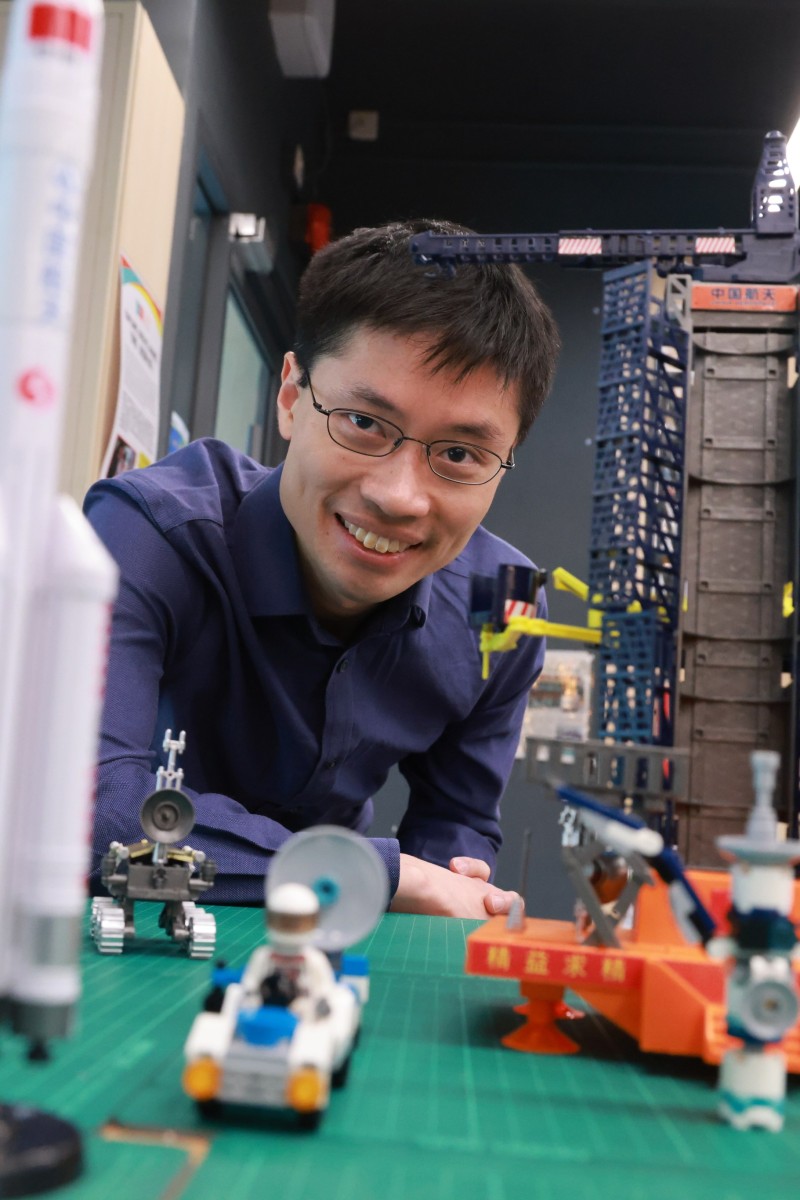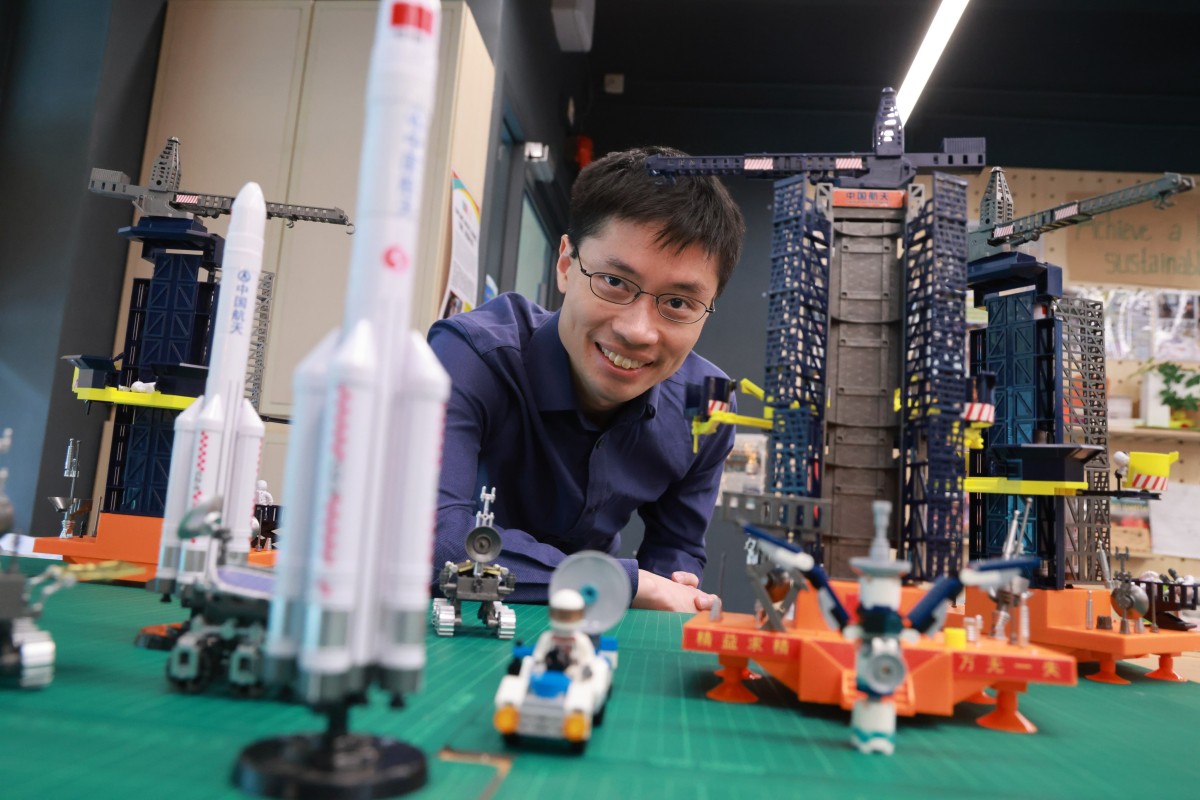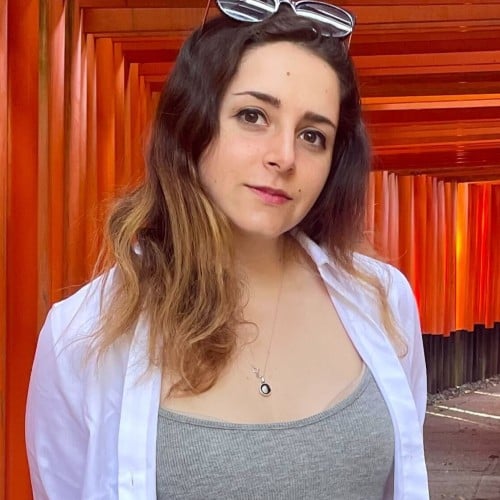
Maths professor aims to captivate learners, make the subject inclusive and exciting with online programme utilising improv comedy
- Professor Loh Po-shen from Carnegie Mellon University advised students to stay curious, focus on empathy to thrive in a time of AI during a visit to Hong Kong last month
- Every week, Talking Points gives you a worksheet to practise your reading comprehension with exercises about the story we’ve written
 Maths Professor Loh Po-shen, who teaches at Carnegie Mellon in the US, wants to change the way educators approach the subject. Photo: May Tse
Maths Professor Loh Po-shen, who teaches at Carnegie Mellon in the US, wants to change the way educators approach the subject. Photo: May TseMaths class can get a bad reputation, with many people thinking it’s a boring subject with lectures that will make even the worst insomniac fall asleep.
Maths Professor Loh Po-shen wants to change people’s perceptions of the subject. He aims to revolutionise traditional maths education by introducing elements that engage and captivate young learners, making the subject fun and intriguing.
Loh, a professor at Carnegie Mellon University in the US, visited Hong Kong last month to give a talk called “How to Survive in the Age of AI” as part of a masterclass through the Hong Kong Baptist University Affiliated School.
According to Loh, artificial intelligence (AI) gives teachers the “opportunity to ... completely rethink what education and assessment are about.”
Hong Kong student hopes to adopt AI beyond ChatGPT in classrooms
It’s also a chance to change the way students learn, said 41-year-old Loh, who was also the national coach of the United States’ International Mathematical Olympiad Team for over 10 years. Loh explained that the standard way of studying maths is for students to sit, listen to the teacher, and assume that teacher is always right. “You never learn to question it,” he said.
But this way of teaching, along with typical methods like repetition and rote memorisation, is outdated in the internet age, he explained. In addition, learning doesn’t have to take place only in a school setting.
“One major thing that has changed is that, at any age, if you have the motivation, you can pick up basically any skill – even coding, algorithms, or how to fix car headlights. Just go to YouTube.”
Fun spin on maths
To make his philosophy a reality, Loh used his time during the Covid-19 pandemic to develop a virtual classroom setting where maths was collaborative, inclusive, and fun. What eventually transpired was LIVE, a virtual programme that claims to deliver “a revolutionary way to learn maths online”.
LIVE offers self-paced and live-streamed classes. The teachers are secondary school students and two people lead classes of about 40 pupils each.
The classes encourage “active thinking,” and students can talk to each other and question outcomes and methodologies through a live on-screen chat during lessons. These sessions have been designed to be as captivating as possible; Loh said he even considered details such as the teachers’ background screens, which often resemble that of a Twitch gamer to keep kids’ attention.
Mechanical flowers STEAM project gives Hong Kong students a chance to bloom and grow
To add a truly unique spin to traditional tutoring, Loh drew inspiration from improvisational comedy and hired professional actors to show the young teachers how to keep their classes engaged.
During lessons, teachers receive real-time feedback from a professional actor who watches the class alongside the students. Loh said this helps them stay entertaining, adding that the actor helps teachers adjust their delivery until it’s “as captivating as TV.”
Advantages of humanity
Having worked with students for decades, Loh has seen the maths space change drastically, particularly with the onset of AI. He was quite intrigued by ChatGPT, a tool many students use in their day-to-day lives. However, “the problem is, if [ChatGPT is] wrong some of the time, you need to have the critical thinking to look at it and ask, ‘Is that right?’” Loh said.
It’s one reason he prioritises problem-solving skills and logic training in his students. In addition, though maths can be a solitary activity, Loh encourages group brainstorming and collective work, believing that these logic training and communication skills will help students learn to outmanoeuvre AI.
“There are so many students whose maths is really, really good,” he said. “But they need [more than a high] IQ. They need real communication skills.”
Loh said communication skills help teachers become role models for their students, allowing them to become more empathetic and develop a sense of social responsibility.
It all ties into the most important question students should be able to answer: “Are you able to create value or not?” Loh said, elaborating that value wasn’t measured in an economic or material sense but rather in terms of what you have done for others.
In addition, it’s also important to stay curious: “I want to have people around me who never consider that the limit of their knowledge is what they learned in school. In fact, I don’t even consider courses and GPAs as the final measure of what a person is able to do,” Loh said.
“I’m much more interested in [qualities such as], how intellectually curious are you? How capable are you of learning something new?”
To test your understanding of this story, download our printable worksheet or answer the questions in the quiz below.
